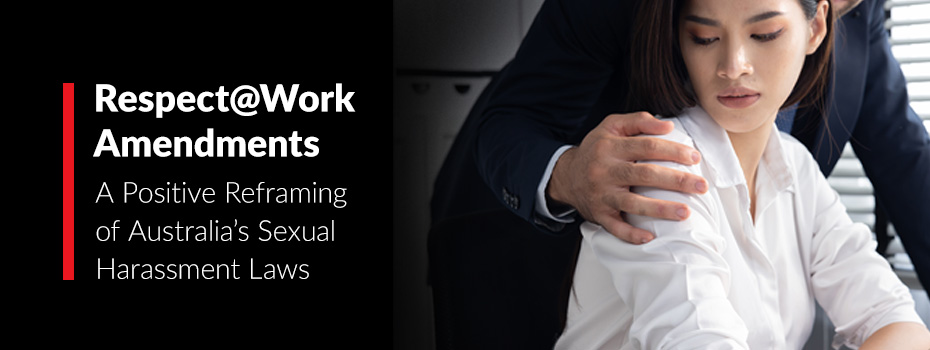
Respect@Work Amendments: A Positive Reframing of Australia’s Sexual Harassment
08 March 2024 12:00
Belinda Smith
Australia is coming to terms with the fact that sexual harassment is pervasive, harmful and clearly not being addressed by the existing laws, which relied almost entirely on individual victims to lodge formal complaints and bear the burden of driving change. The Respect@Work: National Inquiry into Sexual Harassment in Australian Workplaces (Respect@Work) by the Australian Human Rights Commission (AHRC) played a pivotal role in developing the momentum and shape of the country’s response to sexual harassment.
The Respect@Work inquiry plays a ‘critical first step’ in finding a solution to sexual harassment by documenting and analysing the data to understand ‘the scale and nature of the problem’, and it suggests that more than half of all Australians have recently been exposed to sexual harassment at work.
This article comes from the experts behind the Australian Journal of Labour Law. The journal is designed to be of service both to the academic community and to practitioners in labour relations law and labour relations. It also has contributions detailing or analysing the importance of recent developments in labour law or dealing with issues of policy and reform.
Subscribers to the Australian Journal of Labour Law can access the full article HERE.
Underpinning many of Respect@Work’s recommendations was its finding that sexual harassment at work causes significant harm to victims, as well as to bystanders, friends, family and even the harassers. For victims, harassment often had devastating impacts on health and well-being, day-to-day employment, career, finances, relationships with colleagues, friends and family. For employers, the costs were substantial too, with harassment impacting productivity, retention, morale and resulting in costs of dealing with complaints, litigation and workers’ compensation.
Legislative amendments are being made across the Sex Discrimination Act 1984 (Cth), Fair Work Act 2009 (Cth) and work health and safety laws to harmonise and improve individual protections.
The most significant change, though, is the introduction of a new duty on persons conducting a business or undertaking to take positive steps to prevent harassment and sex discrimination. While its deficiencies are acknowledged, this duty could play an important functional and symbolic role in shifting regulatory attention from victims to their employers and other duty holders, and more importantly, from redressing harm after the fact to preventing it in the first place.
Employment Law Practice Area Collection
LexisNexis® provides extensive coverage of federal and state employment law across our many publications. Authored by leading experts in the field, these analytical works include commentary and analysis on employment, industrial and occupational health and safety law. The flagship title Workplace Law Fair Work contains extensive annotations to the Fair Work Act as well as commentary on workplace discrimination, paid parental leave, termination of employment, and much more. Practical Guidance Employment is a how-to solution for workplace law practitioners, human resources professionals and in-house counsel dealing with workplace law matters. It provides task-oriented guidance supported by on-point cases, legislation, checklists, precedents, time-saving tools, and white-label training materials, covering the dynamic employment law landscape.
Learn more here.
Fill out the form to download the full article.
 LexisNexis
LexisNexis